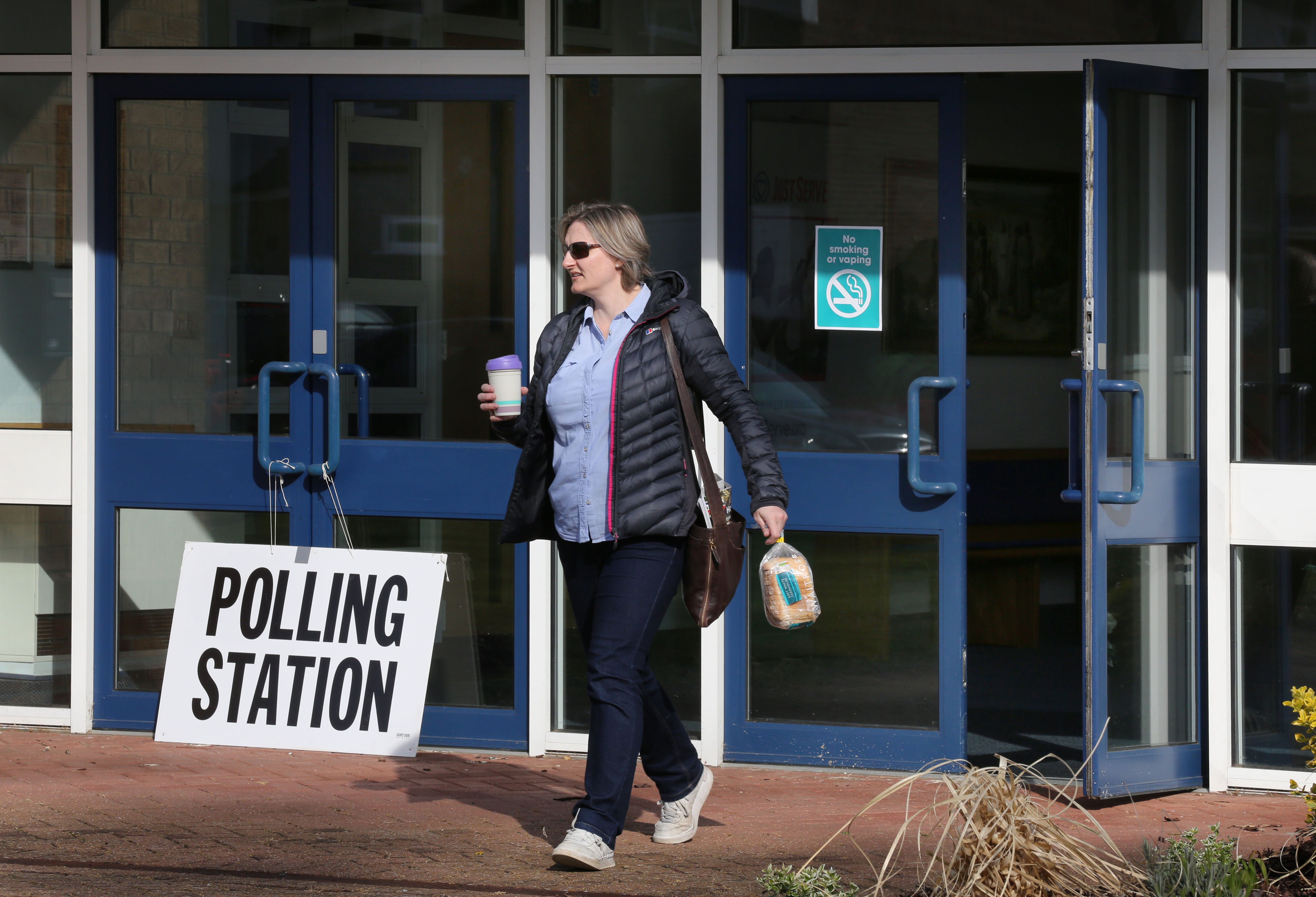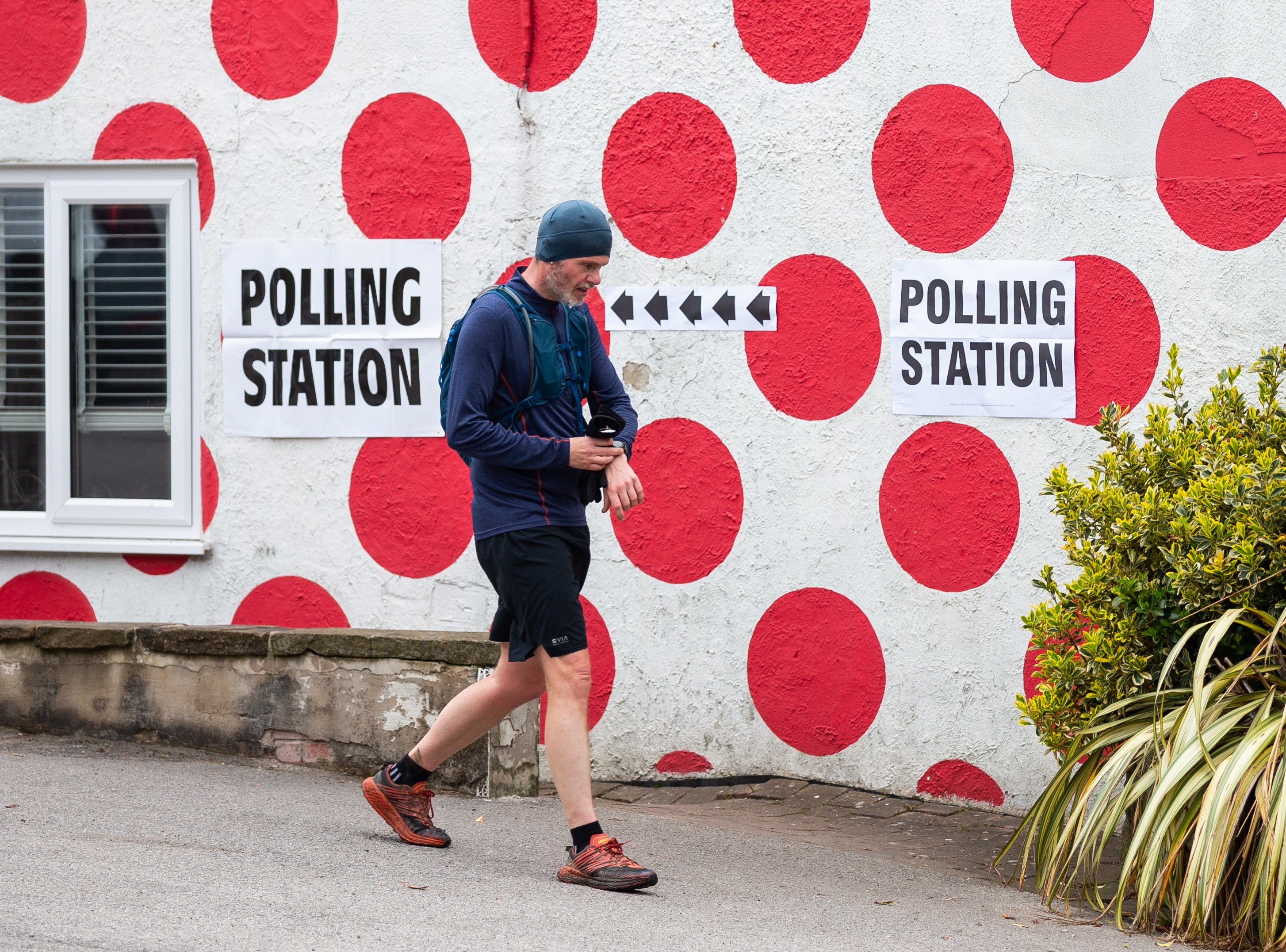
New photographic ID requirements have “regrettably” left some voters unable to cast their ballots in a set of elections which are expected to be bruising for Rishi Sunak’s Tories.
The Electoral Commission said that overall the elections were “well run” but the requirement to carry photo ID posed a challenge and some people were unable to vote as a result, although detailed work will be needed to understand the scale of the problem.
Campaigners have reported “countless examples” of would-be voters being turned away from polling stations on the first English elections where photo identification is mandatory.
An Electoral Commission spokesman said: “We already know from our research that the ID requirement posed a greater challenge for some groups in society, and that some people were regrettably unable to vote today as a result.
“It will be essential to understand the extent of this impact, and the reasons behind it, before a final view can be taken on how the policy has worked in practice and what can be learned for future elections.”
Opponents of the voter ID requirement claimed thousands of people had been turned away.
Tom Brake of Unlock Democracy, who is leading a coalition of groups opposed to the policy including the Electoral Reform Society, Fair Vote UK and Open Britain, said: “Today has been a dark day for British democracy.
“Reports from all over the country confirm our very worst fears of the impact of the disastrous policy which has been made worse by the shambolic way it has been introduced.”
The results of the elections will be keenly studied with the prospect of a general election in 2024.
The prime minister has already conceded it will be a “hard night” for the Tories but insisted they were moving away from “box set drama” politics after the scandal-prone tenure of Boris Johnson and the chaotic collapse of the Liz Truss administration.
A Tory spokesman said: “This will be a tough night for the Conservatives. Any government which has been in power for 13 years is highly likely to lose seats.”

The Conservatives have sought to manage expectations by pointing to forecasts by academic experts Professors Colin Rallings and Michael Thrasher which suggest they could lose more than 1,000 seats if things go badly.
The Tories will seek to portray any defeat below that scale as better than expected - although the loss of hundreds of councillors would not bode well for Mr Sunak’s hopes in the general election expected in 2024.
The Tory spokesman said: “Independent experts Rallings and Thrasher have said we could lose over 1,000 seats.
“But if Labour want to be in with a chance of taking office after the next general election as they did in 1997, they need to be making very significant gains as they did in 1995 - the last most comparable election - anything less than that will pose serious questions for Labour HQ.”
The analysis by professors Rallings and Thrasher suggested gains of more than 700 for Labour would represent Sir Keir Starmer’s party’s best performance for at least a decade, which could put them on the path to becoming the largest party at a general election - even if short of an overall majority in the Commons.
But 250 gains or fewer would be disappointing, while under 150 extra councillors would be “effectively a step backwards”, the academics said.
Shabana Mahmood MP, Labour’s national campaign co-ordinator, said: “We are proud of the positive campaign we have run, focused on the issues that matter most to voters.
“This is a cost-of-living election. We have set out the choices we would make to help people through the cost-of-living crisis, cut crime and cut NHS waiting lists, but the Tories have been silent on the issues that matter most.
“If the Conservatives go backwards from their disastrous 2019 local election results, the voters will have sent a damning message about Rishi Sunak’s leadership.
“It’s going to be a long night and the full picture of results will not form until well into Friday afternoon but we expect to make gains and show we’re making the progress in the places we need to win at the next election.”

Liberal Democrat deputy leader Daisy Cooper said: “I have knocked on countless doors in recent weeks and heard real anger and frustration from voters who are sick and tired of being taken for granted by this Conservative government. Tonight their voices will be heard.
“I want to take this opportunity to thank Liberal Democrat councillors, candidates and volunteers who work tirelessly for their communities. They are true local champions who stand up for their local areas, and have done the party proud.”
The row over the voter ID requirement follows a change in the law requiring voters to have a photograph document from a defined list to protect against the potential risk of electoral fraud.
The Electoral Commission, which was given £5.6 million to carry out a public awareness campaign, has tasked councils with recording how many would-be voters were turned away inside polling stations.
But no record will have been made if greeters deployed outside polling stations turned people away.
The government has estimated that about 4 per cent of Britain’s population - or two million people - were unlikely to have a valid form of photo ID to vote.
Passports, driving licences and blue badges are among the IDs permitted, as are the free certificates that could be applied for ahead of the vote.
Photo ID will be required in England during future general elections under the policy.
On Thursday, more than 8,000 council seats were being contested across 230 local authorities, while mayors were being selected in Bedford, Leicester, Mansfield and Middlesbrough.
No votes were taking place in London and Birmingham, along with other areas including Cornwall, North Yorkshire and Cumbria.
The last time the same council seats were contested was in May 2019, when the Tories performed poorly under Theresa May as she struggled with Brexit.
The Conservatives lost more than 1,300 council seats and majority political control of 44 councils, meaning they had less to lose on Thursday than they might have done.
About a quarter of the votes are expected to be counted overnight, with the rest counted during the day on Friday.







